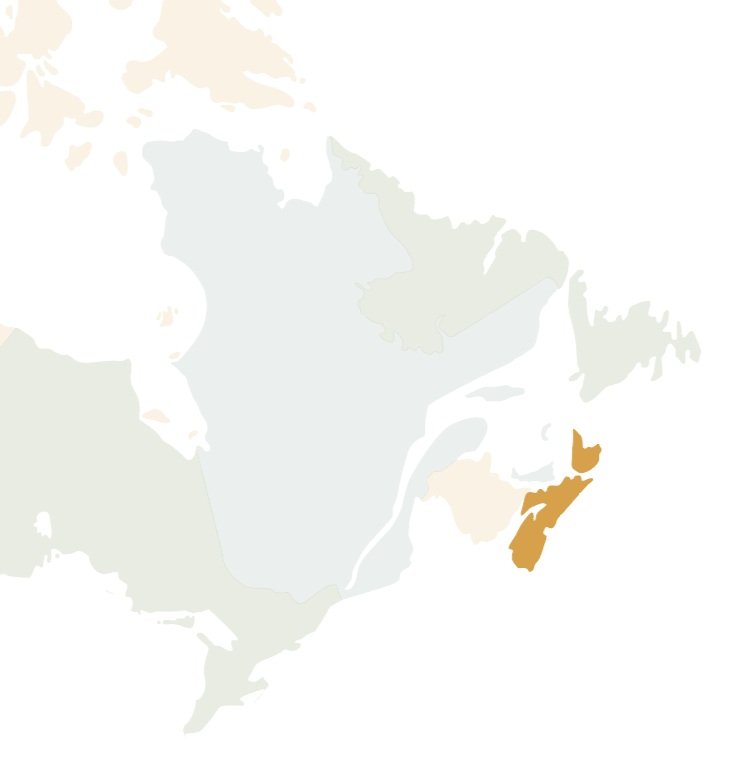Farm Grants in Nova Scotia
You Focus on Farming, We Get You Funded.
Farming in Nova Scotia offers unique opportunities, but accessing the right funding can make a significant difference in your success. Whether you’re expanding your operations, adopting sustainable practices, or investing in innovative technology, there are a wide range of grants specifically designed to support agricultural businesses in Nova Scotia.
Each province has its own set of funding priorities, shaped by regional industries and community needs. From government programs to industry association grants, Nova Scotia offers targeted support for various commodities and practices. In addition to provincial opportunities, federal funding is available to help farmers across the country enhance infrastructure, boost productivity, and build resilience.
At Farm Grant Finders, we make it easy to find and secure the funding that best fits your farm’s goals. Let us help you navigate the grant landscape and maximize your opportunities.

Search for Grants in Nova Scotia
Supports the adoption of clean technologies in Canada’s agriculture and agri-food sector to enable a low-carbon, sustainable economy.
Provides non-repayable contributions to help Canadian dairy processors manage surplus solids non-fat through equipment upgrades and facility improvements.
Offers repayable contributions of up to $5M to commercialize or demonstrate innovative, commercial-ready agri-tech solutions that enhance sustainability and competitiveness in Canada’s agri-food sector.
Supports food security and access to local, nutritious, and culturally appropriate food through food production-focused infrastructure for equity-deserving groups, particularly Indigenous and Black communities.
Supports projects that empower Indigenous Peoples and other underrepresented groups in Canadian agriculture by improving sector participation, training, leadership, and career awareness.
Supports industry-led marketing and promotional activities that increase exports and global visibility of Canadian agri-food, seafood, and agricultural products.
Supports Indigenous communities and entrepreneurs with funding and partnerships to launch or scale agriculture and food system projects across Canada.
Helps Canadian youth (ages 15 to 30) build skills and work experience needed to successfully enter the labour market.
Supports efforts to build public trust in Canadian agriculture by promoting appreciation of farmers and transparency in food production.
Supports promotional efforts to grow domestic demand for Canadian turkey and chicken, as part of Canada’s commitment to compensate supply-managed sectors under CPTPP.
Offers short-term financial assistance to licensed Canadian wineries facing new and ongoing challenges impacting their competitiveness.
Supports Canadian smart farms in evaluating emerging agricultural technologies and building collaborations that drive innovation, adoption, and agtech workforce development.
Provides federal funding to help food processing companies safeguard workers’ health during COVID-19 and invest in modernizing facilities to secure Canada’s food supply.
Supports Canadian businesses in reformulating, scaling, and strengthening the plant-based and agrifood ecosystem through innovative ingredient use and supply chain improvements.
Supports projects that enhance sector capacity, build public trust, and increase awareness of Canadian agriculture through training, knowledge sharing, and engagement — with a focus on national-level initiatives and inclusivity.
This program helps Canadian agricultural industries build market confidence and resilience by supporting the development of assurance systems and sectoral insurance tools that enable SMEs to meet domestic and international market standards.
Supports new ownership of commercial farms in Nova Scotia by offering financial relief on interest costs during the first four years of operation.
Supports Nova Scotia farms and agri-businesses in enhancing competitiveness, managing change, and building risk management strategies through advisory services.
Supports producers in adopting advanced farm technologies that improve efficiency, reduce costs, and enhance productivity.
Supports Nova Scotia value-added agri-businesses through equipment purchases that enhance local food production and sustainability.
Supports small farms in Nova Scotia earning under $30,000 annually to expand production through infrastructure and equipment upgrades.
Helps Nova Scotia farmers adopt beneficial environmental practices and reduce climate-related risks after completing an Environmental Farm Plan (EFP).
Supports Nova Scotia producers, processors, and associations in accessing new local and export markets through product modifications, marketing, and capacity building.
Provides a one-time grant to Nova Scotia farms impacted by infrastructure or crop damage, livestock loss, or power outages caused by Hurricane Fiona.
Supports hive health, pollination expansion, and technology adoption to strengthen Nova Scotia’s apiculture industry and address labour shortages.
Supports Nova Scotia farmers in adopting sustainable and energy-efficient practices through funding, rebates, and expert energy guidance.
Supports Nova Scotia farmers and agri-businesses in adopting clean technologies that drive sustainable growth and reduce environmental impact.
Supports Nova Scotia wild blueberry and apple growers in upgrading harvesting equipment to improve efficiency and reduce labour demands.
Supports capacity expansion for licensed abattoirs and beef processors in Nova Scotia through funding for facility upgrades and process improvements.
Supports applied research and on-farm innovation trials that improve the production, sustainability, and competitiveness of Nova Scotia’s agricultural sectors.
